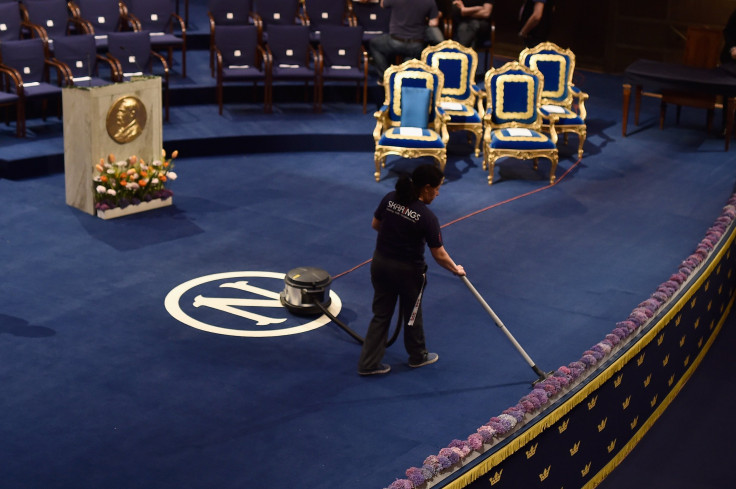Nobel for Medicine Awarded To Jeffrey Hall, Michael Rosbash And Michael Young

The 2017 Nobel Prize in Physiology or Medicine was awarded to Americans Jeffrey C. Hall, Michael Rosbash and Michael W. Young for their discoveries of mechanisms for biological clocks, which enabled "a peek inside our biological clock and elucidate its inner workings."
“Life on Earth is adapted to the rotation of our planet. For many years we have known that living organisms, including humans, have an internal, biological clock that helps them anticipate and adapt to the regular rhythm of the day. But how does this clock actually work? Jeffrey C. Hall, Michael Rosbash and Michael W. Young were able to peek inside our biological clock and elucidate its inner workings. Their discoveries explain how plants, animals and humans adapt their biological rhythm so that it is synchronized with the Earth’s revolutions,” the Nobel Foundation said about Monday’s prize.
Our biological clock helps to regulate sleep patterns, feeding behavior, hormone release and blood pressure #NobelPrize pic.twitter.com/NgL7761AFE
— The Nobel Prize (@NobelPrize) October 2, 2017
The Nobel laureates, using fruit flies as a model organism, isolated a gene that controls the normal daily biological rhythm. They exhibited that this gene encodes a protein that accumulates in the cell during the night, and degrades during the day.
Additional protein components of this machinery were subsequently identified, thus exposing the mechanism governing the self-sustaining clockwork inside the cell. The same principle applies to the functioning of biological clocks in cells of other multicellular organisms, including humans.
“With exquisite precision, our inner clock adapts our physiology to the dramatically different phases of the day. The clock regulates critical functions such as behavior, hormone levels, sleep, body temperature and metabolism. Our wellbeing is affected when there is a temporary mismatch between our external environment and this internal biological clock, for example when we travel across several time zones and experience 'jet lag.' There are also indications that chronic misalignment between our lifestyle and the rhythm dictated by our inner timekeeper is associated with increased risk for various diseases,” the foundation stated.
About the winners:
Jeffrey C Hall was born 1945 in New York and received his doctoral degree in 1971 at the University of Washington in Seattle; he was a postdoctoral fellow at the California Institute of Technology in Pasadena from 1971 to 1973. He joined the faculty at Brandeis University in Waltham in 1974. He was elected to the National Academy of Science for his revolutionary work in the field of chronobiology. In 2002, he became associated with University of Maine.
Michael Rosbash was born in 1944 in Kansas City and received his doctoral degree in 1970 at the Massachusetts Institute of Technology in Cambridge; three three years later, he got a postdoctoral fellow at the University of Edinburgh in Scotland. Since 1974, he has been on faculty at Brandeis University in Waltham.
Michael W Young was born in 1949 in Miami, USA. He received his doctoral degree at the University of Texas in Austin in 1975. Between 1975 and 1977, he was a postdoctoral fellow at Stanford University in Palo Alto. From 1978, he has been on faculty at the Rockefeller University, New York.
The Nobel Prize winners for physics, chemistry, peace and economics will be announced later this week.
© Copyright IBTimes 2024. All rights reserved.





















